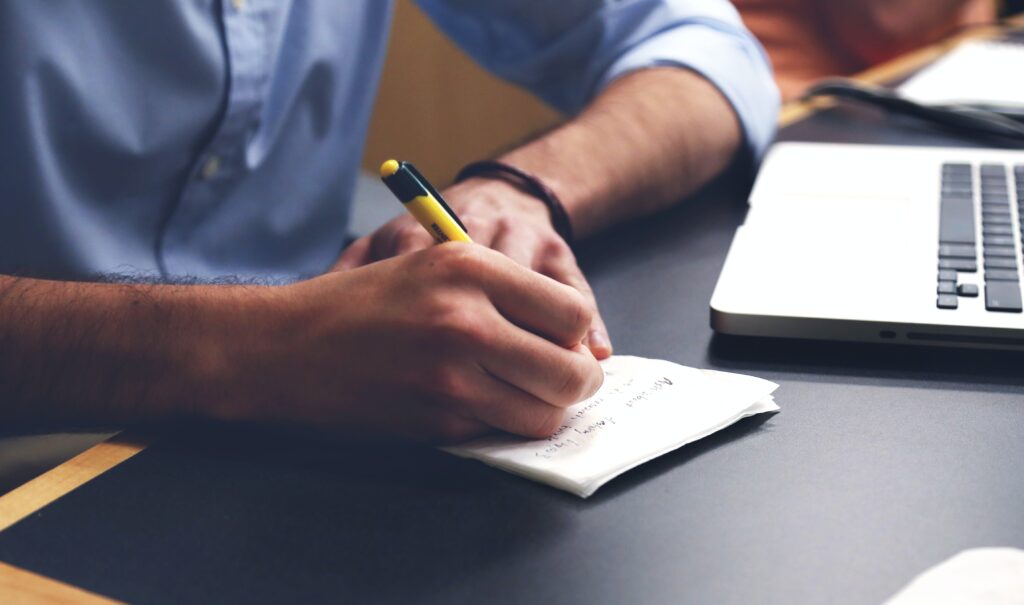6 Small Habits To Help You Be Productive

From Leonardo Da Vinci, to Alexander Hamilton, to Nikola Tesla, to Steve Jobs — history is filled with plenty of great thinkers and trailblazers. But have you ever stopped to wonder what sets these people apart from all the rest? What’s the secret to their success?
At first, you might think that people like this probably already came from wealthy and powerful families, or were born with genius IQs. But you don’t have to be a genius to become a billionaire, and so many success stories of today’s tycoons tell the tale of rags to riches (take Starbucks CEO Howard Schultz or fashion designer Ralph Lauren as examples).
No, the secret to success it seems is to be the most ambitious, the most hardworking, and the most productive person you can be. Oh, but don’t just take our word for it! Read on for some of the best psychology-backed productivity hacks that have helped some of the richest, most famous, and most successful people in the world (that you can easily start doing, too!).
1. Cut your to-do list in half.
Billionaire Warren Buffett once famously said, “The difference between successful people and very successful people is that very successful people say ‘no’ to almost everything.” And whether or not he realized it, he was actually referring to a widely taught productivity tip known as “energy management.” And as you might have already guessed, this concept emphasizes the importance of conserving our energy by prioritizing our tasks.
So take a good long look at your to-do list; do you really need to do all of that today? And can you even realistically do so? Remember, productivity isn’t about getting as much as you can done as quickly as you can. It’s important to pace yourself and take a less-is-more approach when it comes to your to-do list. So be ruthless; leave only the non-negotiables and don’t be afraid to say no to people more often (El Massah, 2015).

2. “Eat the frog.”
“Eat the frog” is a popular saying among life coaches, motivational speakers, and productivity experts, but what does it mean? Well, many have applied this Mark Twain quote — “Eat a live frog, first thing in the morning and nothing worse will happen to you the rest of the day” — to mean that you should always do the hardest tasks first so that everything else seems easier by comparison. A theory popularized by writer and motivational expert Brian Tracy, “eating the frog” helps us to avoid procrastinating and get more done in less time. Because even if you only manage to get that one thing done today, you’re still consistently achieving the most important of your daily tasks and achieving higher levels of productivity than most (Webber, Ser, & Goussak, 2015).

3. Use your free time wisely.
Think about all the things you do in a day. Where does most of your free time go? Do you find yourself wasting a few hours every day just mindlessly scrolling through social media and getting distracted by every new notification on your phone? Or maybe you’re wasting hours commuting or getting stuck in traffic all the time? Either way, it helps to think about more creative ways you could be putting this free time to good use.
Disconnecting from social media during certain hours of the day, for example, has been shown to make us more focused and more productive (Fusi & Feeney, 2018). Eliminating these distractions allows us to engage better with our tasks and live more presently in the moment. Similarly, researchers recommend listening to an audiobook or podcast when commuting or taking long drives to reduce stress, alleviate feelings of boredom and social isolation, and spark creativity (Wei, 2015).

4. Take frequent breaks.
While this might seem counterintuitive to boosting productivity, there are actually plenty of studies documenting the positive impact of taking frequent breaks and leaving room for leisure and recreation in our lives. After all, there’s a good reason why they say, “All work and no play makes Jack a dull boy.”
Much like the rest of our bodies, our brains can also experience mental fatigue when we overwork it, which can quickly worsen into a bad case of burnout. That’s why the Pomodoro technique, a famous time management strategy for studying, always recommends that we take 20-minute breaks for every 40 minutes of continuous work.
But taking breaks isn’t enough; how we spend our breaks also matters. Because unless we achieve psychological detachment from work, then we’ll have missed the whole point of this productivity hack. Ideally, this should also be something relaxing that doesn’t demand too much brain power (like knitting, gardening, coloring, or doing yoga). So find meaningful ways to spend your breaks, leave work at work, and keep living your life to the fullest (Sonnentag, 2012).

5. Give yourself homework.
Charles Duhigg, best-selling author of the self-help book “The Power of Habit,” once said: “The difference between who you are and who you want to be is what you do.” And the more we reflect on his words, the truer they become. Because only when we set goals for ourselves, make plans, and take actionable steps can we begin to make our dreams a reality.
So regularly give yourself homework. Think about what it is you want to achieve, whether personally or professionally, and break it down into smaller steps or tasks that you can do daily, weekly, or monthly. Be sure to keep your goals SMART, too; that is, specific, measurable, achievable, realistic, and time-bound.

6. Create a reward system.
Finally, but perhaps most importantly, having a reward system in place can significantly boost your productivity. Why? Well, psychologists have found that rewards are important for stress-coping and enjoyment enhancement, as well as for reinforcing productive behaviors. The best way to do this, according to experts, is by using a “behavioral activation framework” (Lejuez, Hopko, Hopko, & McNeil, 2001).
Commonly used in therapy, behavioral activation works by creating a hierarchy of desired activities/outcomes (e.g., your goals and productivity habits), ranking them according to difficulty, and assigning a specific reward for each. This way, you can be sure you’re not overworking (which leads to burnout) or over rewarding yourself (which leads to procrastination).

So, do you agree with the things we’ve mentioned on this list? Are you open to adopting any of these productivity habits for yourself? Maybe you’ve already tried or even mastered a few of these tips and tricks yourself. Either way, it doesn’t hurt to branch out a little bit and experiment with some tried-and-tested ways to boost your productivity.
And in the words of Andrew Mason, billionaire businessman, “Discipline matters more than intelligence.” So don’t make the mistake of underestimating the power of habit in achieving success and becoming more productive.
Which productivity habit do you want to start doing today?
References:
- El Massah, S. (2015). The relation between students’ productivity and lifestyle habits. European International Journal of Science and Humanities, 1(3).
- Fusi, F., & Feeney, M. K. (2018). Social media in the workplace: information exchange, productivity, or waste?. The American Review of Public Administration, 48(5), 395-412.
- Lejuez, C. W., Hopko, D. R., Acierno, R., Daughters, S. B., & Pagoto, S. L. (2011). Ten year revision of the brief behavioral activation treatment for depression. Behavior modification, 35(2), 111-161.
- Sonnentag, S. (2012). Psychological detachment from work during leisure time: The benefits of mentally disengaging from work. Current Directions in Psychological Science, 21(2), 114-118.
- Webber, J. K., Ser, E. M., & Goussak, G. W. (2015). Work habits as positive and negative influences on workplace productivity. Global Journal of Business Research, 9(1), 39-48.
- ‘Commuting: The Stress That Doesn’t Pay’ by Marlynn Wei M.D., J.D. (January 12th, 2015) Retrieved from https://www.psychologytoday.com/ca/blog/urban-survival/201501/commuting-the-stress-doesnt-pay



Responses